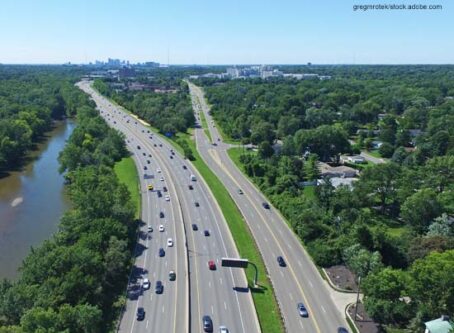Comment period winding down on CDL upgrade proposal
The Federal Motor Carrier Safety Administration is trying to make it easier for drivers to upgrade a Class B commercial driver’s license to a Class A CDL.
FMCSA’s notice of proposed rulemaking, which published in the Federal Register on June 29, would reduce the training time and costs for Class B drivers to receive an upgrade. Comments on the notice will be accepted until Aug. 28.
“The notice of proposed rulemaking does not propose any changes to behind-the-wheel training requirements set forth in the entry-level driver training final rule,” the FMCSA wrote. “The agency believes that this modest change in the Class A theory training requirements for Class B CDL holders upgrading to a Class A CDL would maintain the same level of safety established by the entry-level driver training final rule.”
Under the proposed rule, eight theory instructional units (Handling and Documenting Cargo, Environmental Compliance Issues, Post-Crash Procedures, External Communications, Whistleblower/Coercion, Trip Planning, Drugs/Alcohol, and Medical Requirements) would no longer be required for Class B CDL holders who are upgrading to a Class A CDL. However, the units would remain a requirement for an individual who is attempting to obtain a Class A CDL and does not already hold a Class B CDL. Beginning on Feb. 7, 2020, those training classes will already be required in order to obtain a Class B CDL.
“The Agency believes that requiring Class B CDL holders who are upgrading to Class A to be retrained in those topics, which they have already mastered by successfully completing the Class B theory instruction, imposes an unnecessary regulatory burden on those individuals,” the FMCSA wrote.
However, drivers who obtain a Class B CDL before Feb. 7, 2020 would be able to upgrade to a Class A without ever taking these courses if this becomes a rule.
FMCSA said it believes Class B holders who were able to forego the courses would still have enough experience in order to be worthy of an upgrade.
“FMCSA presumes that these Class B holders seeking to upgrade to a Class A CDL would already have varying levels of commercial motor vehicle driving experience and pre-CDL training, and thus knowledge of the commercial motor carrier industry,” the Agency wrote. “Accordingly, FMCSA does not consider Class B CDL holders in this category to be novice commercial motor vehicle drivers.”
According to the FMCSA, an annual average of 11,340 driver-trainees would be affected by the proposed rule as each would experience a reduction of 27 hours in time spent completing their theory instruction. The agency estimates that driver-trainers would realize an annual cost-savings of $17.1 million, while motor carriers would receive an annual cost savings of $1.04 million.
FMCSA’s entry-level driver training rule, which does not include a minimum number of behind-the-wheel driving hours, was published in 2016 and has a compliance date of Feb. 7, 2020.









